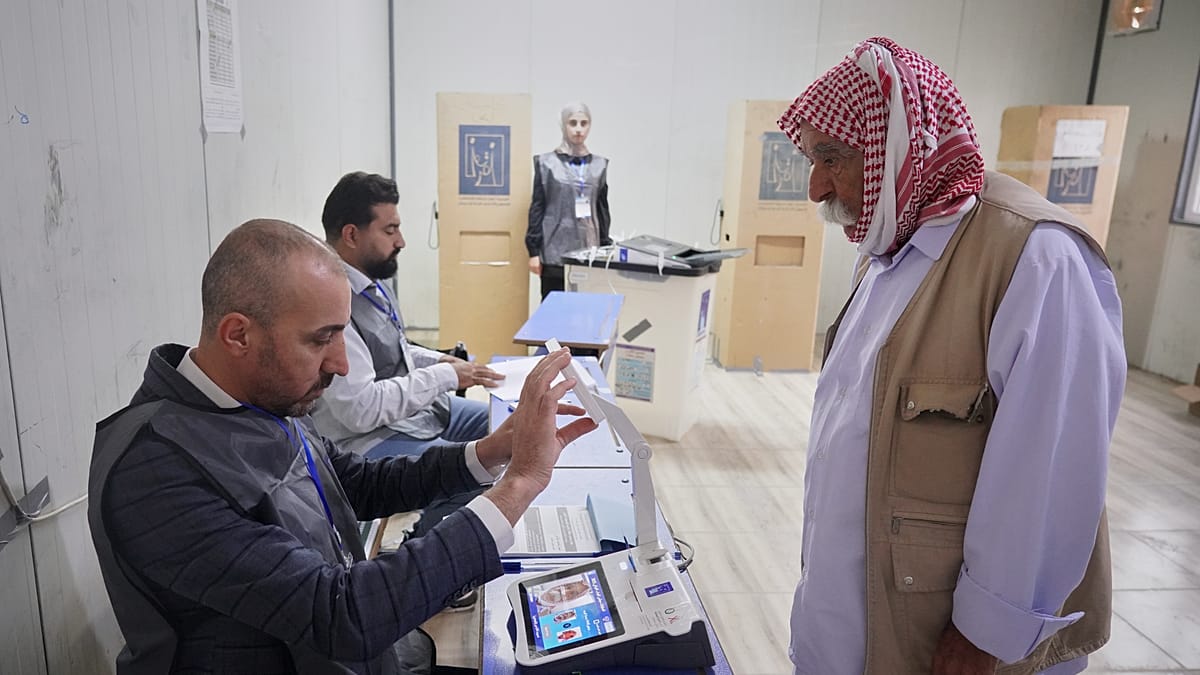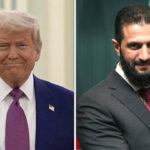By Sertac Aktan withAP
Release date
Members of Iraqi security forces and displaced people living in camps cast their votes in early voting on Sunday ahead of this week’s Iraqi parliamentary elections.
An estimated 1.3 million military and security personnel and approximately 26,000 displaced persons are eligible to vote.
7,744 candidates are participating in the election, most of them from political parties largely aligned with sectarian interests. Voting day is set for Tuesday.
The election, which will decide whether Iraqi Prime Minister Mohammed Shia al-Sudani wins a second term, comes against a backdrop of fears of a new conflict between Israel and Iran and Iraq’s balancing act with Iran and Washington.
Displaced Yazidi minority voting
Many Yazidis, many of whom fled their homes more than a decade ago after attacks by the Islamic State group, voted at a camp near Duhok in northern Iraq’s Kurdish region. Many are still unable to return home due to political conflicts and lack of infrastructure.
During a terrorist campaign, IS fighters rampaged through the Sinjar district of Iraq’s Nineveh province, killing and enslaving thousands of Yazidis whom the extremist group considered heretics.
Since the defeat of IS in Iraq and Syria, members of the Yazidi community have slowly returned to their homeland of Sinjar, but many do not see a future there. There is no money to rebuild the destroyed house. Infrastructure is still being destroyed. Multiple armed groups have divided the area.
Displaced Yazidi Edris Zozani, who voted inside the camp, said he voted for the Kurdistan Democratic Party (KDP), one of the two main Kurdish political parties in Duhok.
“Even if there were independent Yazidi candidates, they would not be able to represent us effectively,” he claims. “But if they come to parliament as part of a strong list like the KDP, they will be in a better position to support the Yazidi community.”
Uniform at a polling station in Baghdad
In addition to Iraqi soldiers and police, members of the Popular Mobilization Forces, a coalition of mostly Shiite and Iranian-backed militias united to fight Islamic State, also voted in the Iraqi capital. Although the coalition officially came under Iraqi military control in 2016, it still operates with significant autonomy in practice.
The fate of the PMF will be a complex issue facing the next Congress amid tensions between Baghdad and Washington over the presence of Iranian-backed militias in Iraq.
Congress is considering a bill to strengthen ties between the military and the PMF, drawing opposition from Washington.
“I voted for a list that defends the PMF,” said a militiaman after the vote in Baghdad, requesting anonymity because he was not authorized to speak to journalists. He did not specify which list he was referring to.
Some of the armed groups that make up the PMF are affiliated with political parties participating in elections.








